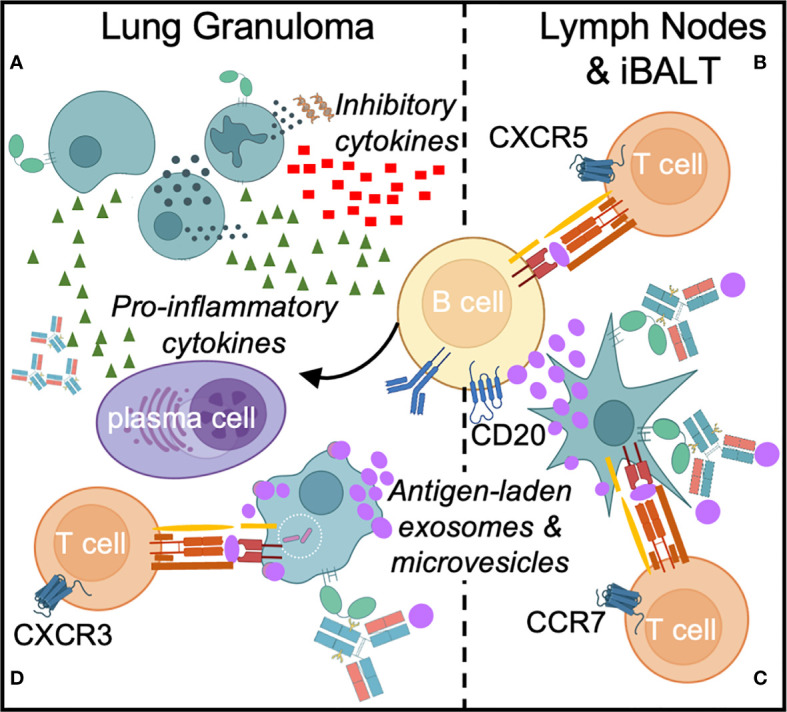Figure 3.

Direct and indirect B cell responses occur in Mtb infection. Direct responses include cytokine production and differentiation of B cells specific into plasma cells that secrete Mtb-specific antibodies (A). In response to Mtb infection in the lung, B cell effectors such as memory B cells, plasmablasts and plasma cells secrete pro-inflammatory cytokines (TNFα, IFNγ, IL2, IL6, GM-CSF and CCL3), while a subset of B cells can secrete inhibitory cytokines, such as IL10, which limits Th17 cell and neutrophil infiltration. In secondary and tertiary lymphoid organs such as lymph nodes and inducible bronchus-associated lymphoid tissue (iBALT), B cells facilitate antigen presentation to T cells (B, C). B cells receive T cell help from Tfh cells to initiate germinal center responses (B) and might also participate in priming T cells through the transfer of Mtb antigens (purple) to dendritic cells via exosomes and extracellular microvesicles (C). Finally, Fc-FcR interactions can enhance Mtb phagocytosis, macrophage and dendritic cell effecror functions, and antigen presentation to T cells in the lung granuloma (D).
